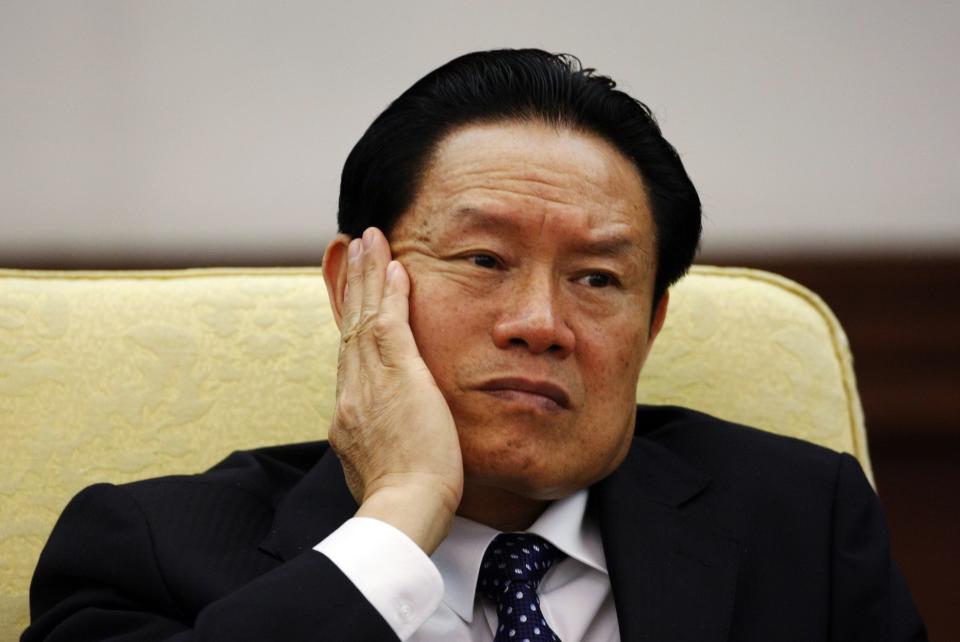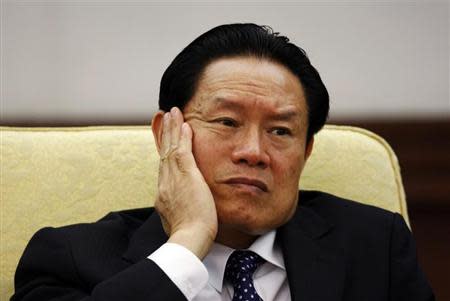China ex-security chief's public appearance throws doubt on graft reports
BEIJING (Reuters) - China's former domestic security chief was all smiles as he attended an alumni celebration at his former university on Tuesday, his first public appearance since overseas media reported that he was being investigated for corruption. Zhou Yongkang, 70, one of the most powerful Chinese politicians of the last decade, attended an alumni celebration at the China University of Petroleum, according to photographs posted by the university on its website. He was seen beaming and shaking hands with people who appeared to be his fellow classmates, throwing doubt on the media reports. Officials suspected of wrongdoing usually disappear from public view in China until they are convicted. Zhou retired as security tsar and from the Communist Party's all-powerful Politburo Standing Committee during a sweeping leadership reshuffle last November. Hong Kong's South China Morning Post reported in late August that Zhou was facing a corruption probe. U.S.-based China-watching news site Duowei said earlier Zhou was under investigation for graft but later withdrew the report for unknown reasons. But sources with ties to the leadership told Reuters last month that Zhou, an ally of jailed former senior politician Bo Xilai, was helping authorities in a corruption probe and was not the target. In a sign Zhou may not be in trouble, major state media websites published his name on two occasions after the reports alleging corruption. In late August, Zhou sent flowers to the funeral of top nuclear scientist Liu Xiyao, while in early September, Zhou was among senior leaders who offered condolences after the death of a former official in southern Guangdong. Since taking office in March, President Xi Jinping has labelled corruption a threat to the ruling Communist Party's survival and vowed to go after powerful "tigers" as well as lowly "flies". As domestic security tsar, Zhou oversaw the police, paramilitary People's Armed Police, prosecutors, judges and the civilian intelligence apparatus. During his watch, government spending on domestic security exceeded individual budgets for defence, healthcare and education. (Reporting by Sui-Lee Wee, Additional reporting by Li Hui; Editing by Nick Macfie)


